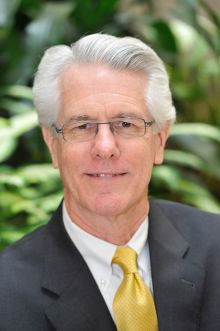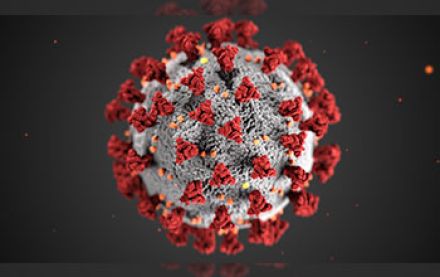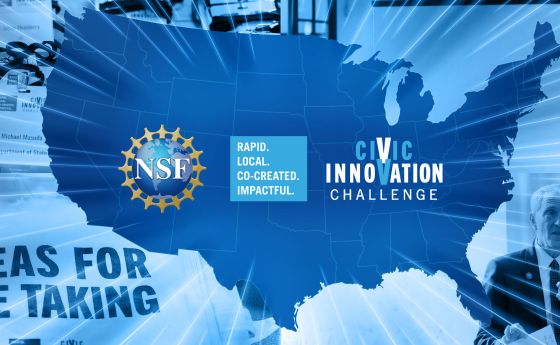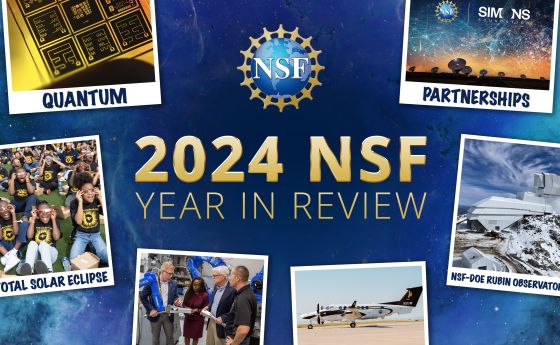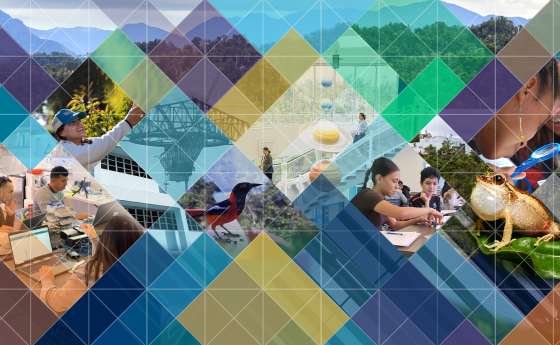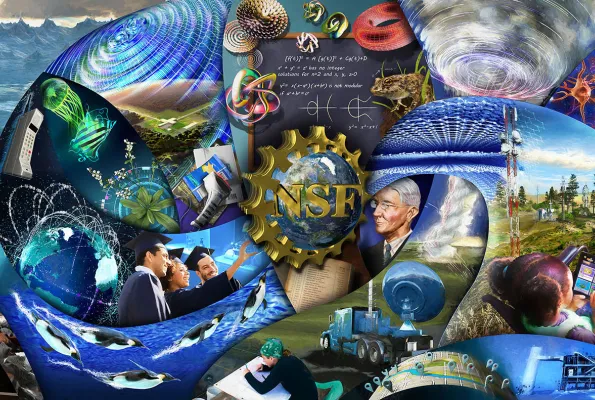
Yesterday's research, today's innovation
Dr. Fleming Crim, the Chief Operating Officer for NSF, discusses how long-term investments in fundamental research fuels national response in times of crisis
Image credit: National Science Foundation/Sandy Schaeffer Photography
America depends on a robust science and technology enterprise to cultivate a thriving economy, secure a strong national defense, and promote the health and well-being of our citizens. Especially in times of crisis, such as the pandemic we are facing today, the nation looks to scientists and engineers to alleviate human suffering. To meet the challenges posed by COVID-19, scientists and engineers are building on decades of scientific research that has steadily expanded the basic understanding of virology, the social dynamics of disease transmission, and the nation's computing capabilities to facilitate nearly all aspects of COVID-19 research. Today's solutions rely on yesterday’s scientific research—the strong base of fundamental knowledge from which innovations arise.
For the past 70 years, the National Science Foundation has played a key role in strengthening America’s S&T enterprise by funding scientific research, education and instrumentation across all fields of science and engineering. NSF-funded research is central to everything from technologies to improve manufacturing processes to new teaching approaches that enhance STEM learning in classrooms across the country. In fact, NSF-funded research has contributed to the development of many of the technologies, such as the internet and cellphones, that we are relying on to stay connected during this period of social distancing.
Today, as the nation responds to the COVID-19 pandemic, NSF-funded research is playing a crucial role. NSF is simultaneously engaging in the long-term work of building a robust scientific research ecosystem while marshaling the diverse resources of the scientific community to meet the urgent need for COVID-19 research.
Fostering a strong research ecosystem
Since its inception, NSF has provided sustained research funding for the best and brightest scientists and engineers, pushing the boundaries of our knowledge about the world around us and beyond.
Through careful evaluation and selection of the most promising research projects submitted to the agency, NSF has cultivated deep connections to the core source of American scientific progress—its scientists and engineers. This close connection between NSF and the scientific community is a dynamic force that keeps the agency evolving and propels it along the leading edge of science and engineering.
But a strong research ecosystem relies on more than scientific innovation alone. NSF contributes to the overall health and vigor of America’s S&T base through long-term support for STEM education and training, research facilities and instrumentation, and efforts to improve the inclusivity of the scientific enterprise.
A robust research ecosystem provides the necessary foundation from which meaningful responses to serious national challenges such as the COVID-19 pandemic arise.
Developing a rapid response
In early March, as the severity of the COVID-19 pandemic intensified, NSF was poised to spring into action. NSF tapped into the ingenuity of the scientific community to formulate a research response to the coronavirus.
Thanks to the agency's flexible funding mechanism known as RAPIDS—Rapid Response Research—NSF responded immediately by channeling resources to COVID-19 research. NSF invited researchers to submit proposals for grants related to deepening the understanding of COVID-19; informing and educating the public about virus transmission and prevention; and developing strategies to address coronavirus-related challenges at the local, state and national levels.
As of May 6, NSF has issued more than 320 RAPID awards totaling over $46 million to researchers around the country to support research related to COVID-19. NSF continues to accept RAPID proposals for non-medical, non-clinical investigations on the coronavirus pandemic.
From the science and engineering behind critical diagnostic tools and medical devices to novel solutions that help communities, businesses and individuals navigate the challenges of this difficult time, NSF’s investments are making a crucial difference.
Investing in the future, today
It will take all of the nation’s S&T resources—from academia, industry, and non-profits to government agencies and labs—working in concert to produce fundamental knowledge about the virus’ structure and transmission; to develop novel social and technological strategies to mitigate its spread; and, eventually, to develop new treatment methods and vaccines.
Just as NSF’s past investments laid the groundwork for the scientific advances of today, we must look to the future of the American S&E enterprise to prepare for challenges we will face tomorrow.
The new National Science Board report, Vision 2030, lays out a bold set of challenges for the country's S&E enterprise. The report sets new benchmarks and outlines a plan of action for the NSB, NSF and the entire S&E community that will be crucial to preserving America’s position as global leader. The report will help guide NSF over the next decade to continue to push the frontiers of science, speed the path from discovery to innovation, and build the workforce of the future.
When this pandemic passes, basic research will continue to be an engine of our economy. It will still underpin our national defense, and it will still drive the innovations and technology that enhance every aspect of our lives. NSF will continue its crucial mission of supporting basic research and strengthening the American S&T enterprise.

